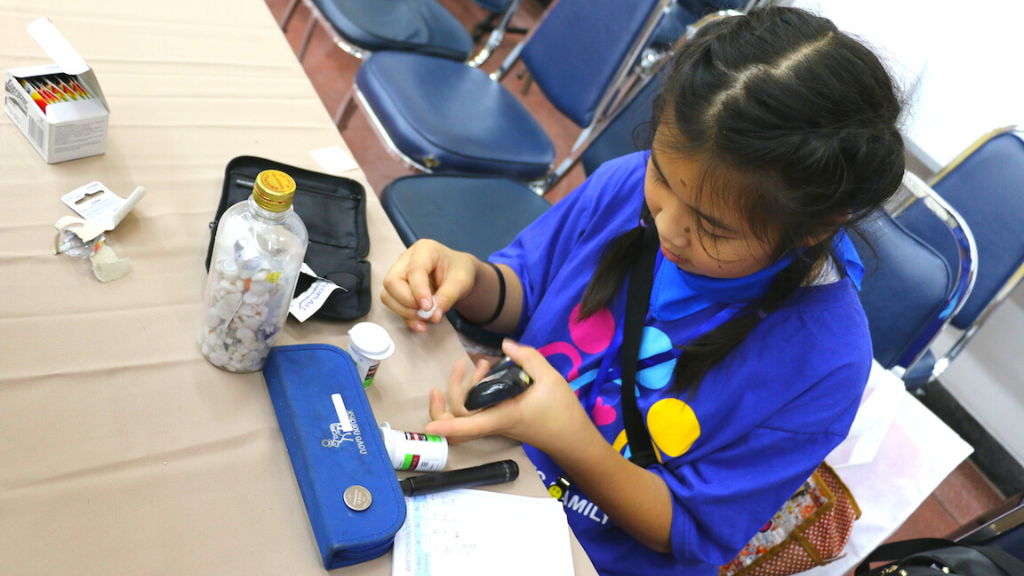
T1D Info
Healthcare Professionals
About Us
Blood glucose monitoring. Why is it so important?
Edited: 23.07.2025

Blood glucose level is the amount of glucose in your blood. Glucose is a type of sugar that comes from the foods we eat or drink, and it’s also formed and stored inside the liver and muscles of our body. It’s the main source of energy for the cells of our body, and it’s carried to each cell through the bloodstream.
Checking your blood glucose levels everyday is important to manage your diabetes and prevent complications. Your blood glucose levels can be tested at home or at school using a blood glucose meter, which is a small machine that measures the amount of glucose in a drop of your blood and displays it on a screen.
Testing blood glucose levels regularly everyday is the best way to maintain a balance between the food you eat, how active you are, and the insulin you are taking.
To monitor the effect of your insulin doses
To know if your blood glucose levels are too high or low
To learn how food and exercise affect your blood glucose levels
Understand that when you are sick or stressed it can also affect blood glucose levels
Out-of-control blood sugar levels not only lead to short-term problems like hypoglycaemia but also life-threatening events like diabetic ketoacidosis (DKA) and diabetic coma.
In the long run, not controlling diabetes can damage important organs, like the heart, kidneys, eyes, and nerves. This means that heart disease and stroke, kidney disease, blindness, and nerve problems can happen to people with diabetes.
When you are ill, it affects how much insulin your body needs. Knowing your blood sugar levels will help you and your doctor to decide if you need to change your diabetes treatment plan. For example, if you should inject more or less insulin.
As you are growing older it is important that you start to learn to manage your diabetes by yourself, rather than relying on your parents.
Blood glucose monitoring is a very straightforward process, and even children can do it by themselves. However, it is still important to remember some do’s and don’ts when taking your blood glucose levels, especially at home. Here are some things to remember:
– Consult your doctor to find out what your ideal blood glucose levels should be. Doctors can help determine your baseline blood sugar levels by asking you to take it in a lab, which is more accurate compared to just taking it at home. This baseline reading serves as the means by which your doctor will set your blood sugar targets as well as your treatment. You could also take your glucometer to your doctor so that they could check if it is calibrated within an accurate range.
– Understand the device that you’re using. While glucometers are designed to be easy to use, it’s still a good idea to familiarise yourself with the functions and features of whatever device you’re using. Take a moment to read the manual, watch videos online, or talk to your doctor about how you can use your glucometer to take accurate readings.
– Record your readings. This step is crucial since it allows you to see if you’re making progress when it comes to your treatment, and if you’re taking the right amount of insulin. Your doctor also uses this information to adjust your treatment if needed and to monitor your condition. While some glucometers save the information on the device, it’s still a good idea to jot it down or write a note on your phone so you don’t miss a reading.
– Stick to a schedule. You shouldn’t just take your blood glucose readings anytime you want. It is important to stick to a schedule so that your readings will provide a more accurate record of your progress. An accurate reading is important in managing your condition and preventing the complications of uncontrolled diabetes.